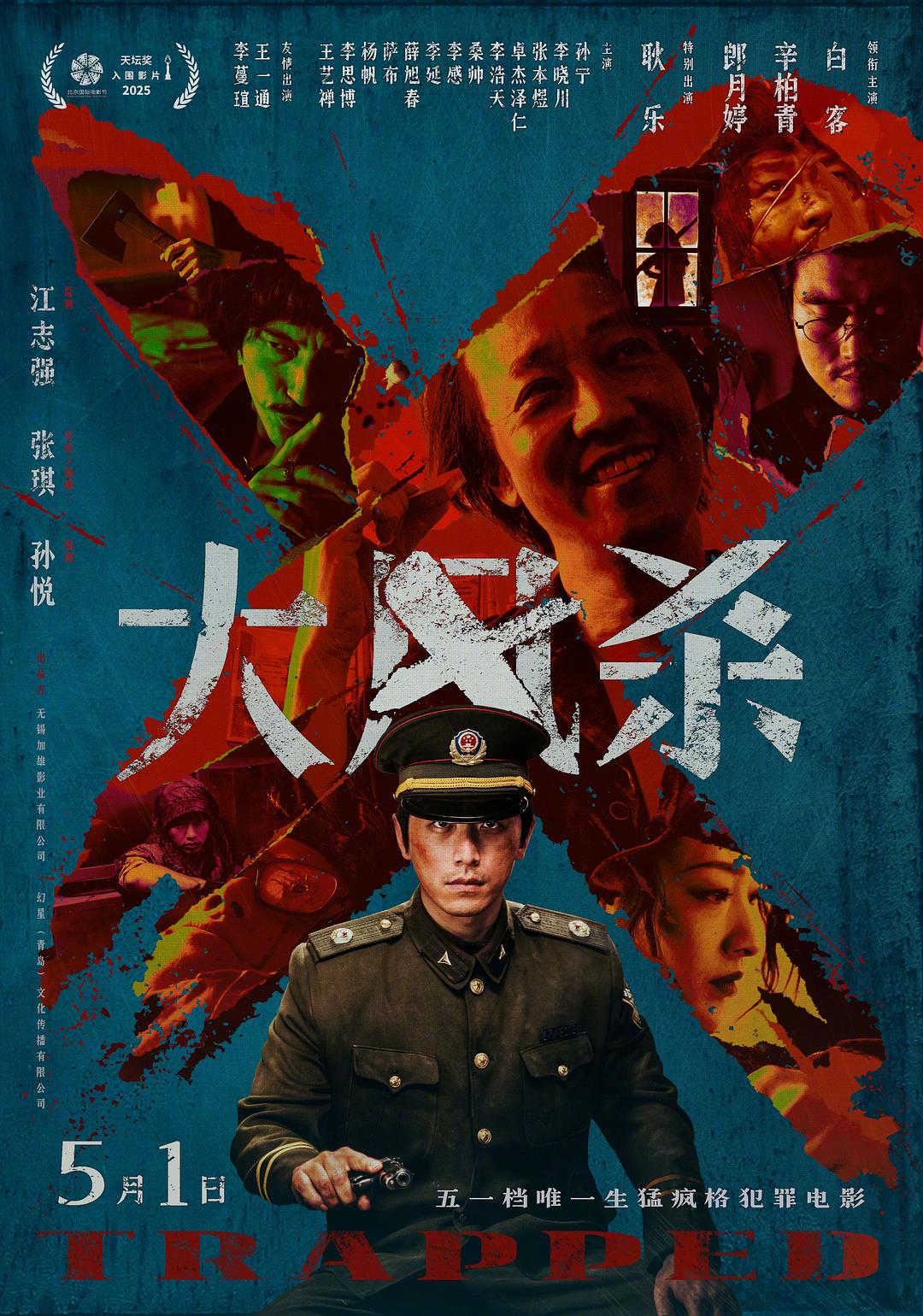
As the sandstorm swept through the prosperous border town, a battle between loneliness and redemption began on the screen. Three policemen and one gun had to fight against 44 bandits with ammunition and ammunition. They had no external help and were out of ammunition and food...
The movie "The Wind Killer" currently showing in cinemas is directed and written by Zhang Qi, and starred by Bai Ke, Xin Baiqing, and Lang Yueting. This work won the Tiantan Award for Best Screenplay and Best Supporting Actor at the 15th Beijing International Film Festival. It is the movie with the highest word-of-mouth rating during this year's busy May Day period, and has even been booked as this year's "Top Ten Domestic Films of the Year".
This is not a story about a lone hero turning the tide and upholding justice as the audience expects, but a cruel struggle about how a group of "trapped beasts" cope with difficulties and changes.

Poster of "The Wind Kills"
Director Zhang Qi, who entered the film industry as an editing supervisor and trailer producer for feature films, has worked with many senior Chinese-language film directors. His own path as a director is another unique one.
During the screening of the film, director Zhang Qi accepted an exclusive interview with The Paper, leading the audience to push away the wind and sand and explore the creative thinking and life warmth behind it.
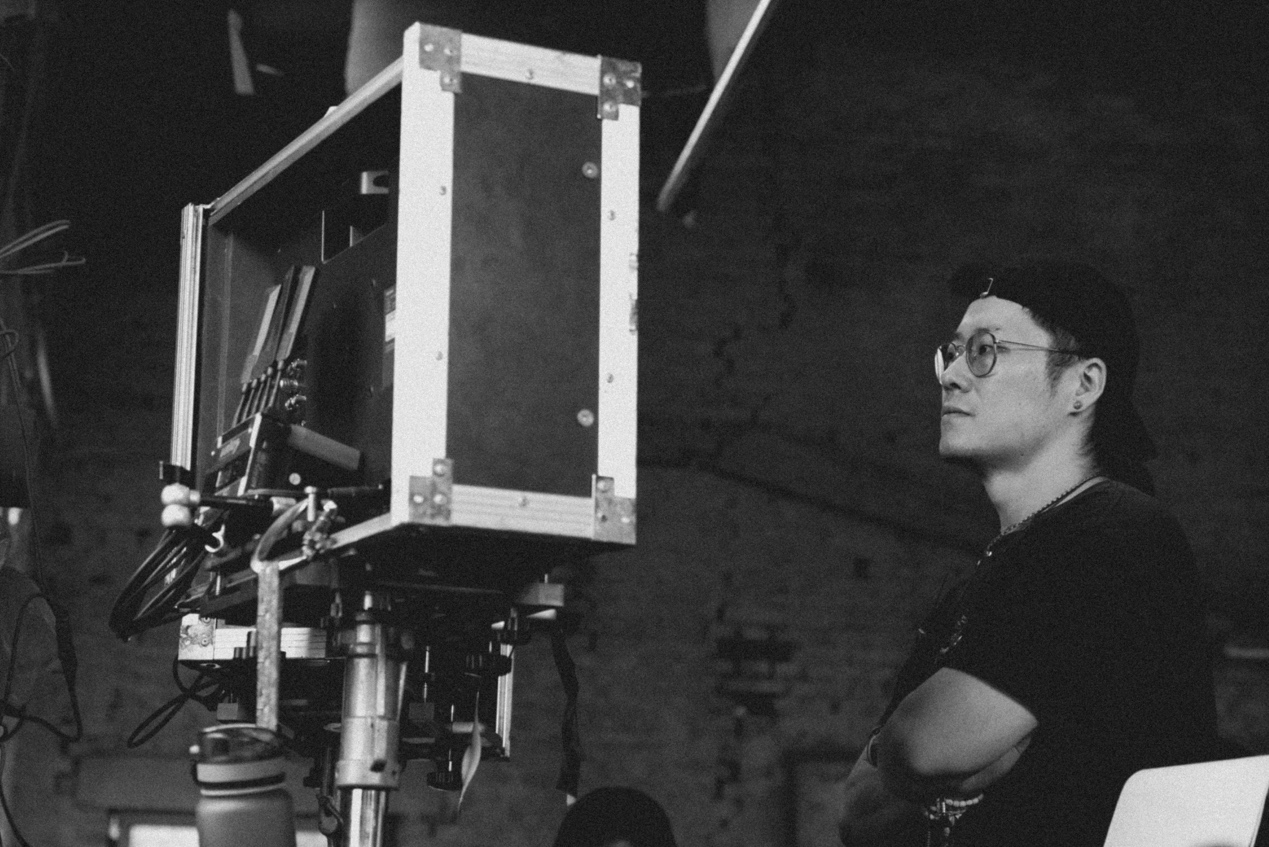
Director Zhang Qi
Fear is the grammatical code of this film
The film is set in the once prosperous border town of Mangya. In the 1990s, people with dreams of getting rich flocked to Mangya, viewing it as a small Shenzhen in the western region. But the border was closed just one year after it was opened. The sudden change caught the people of the town off guard, and all their hopes were suspended in an instant.
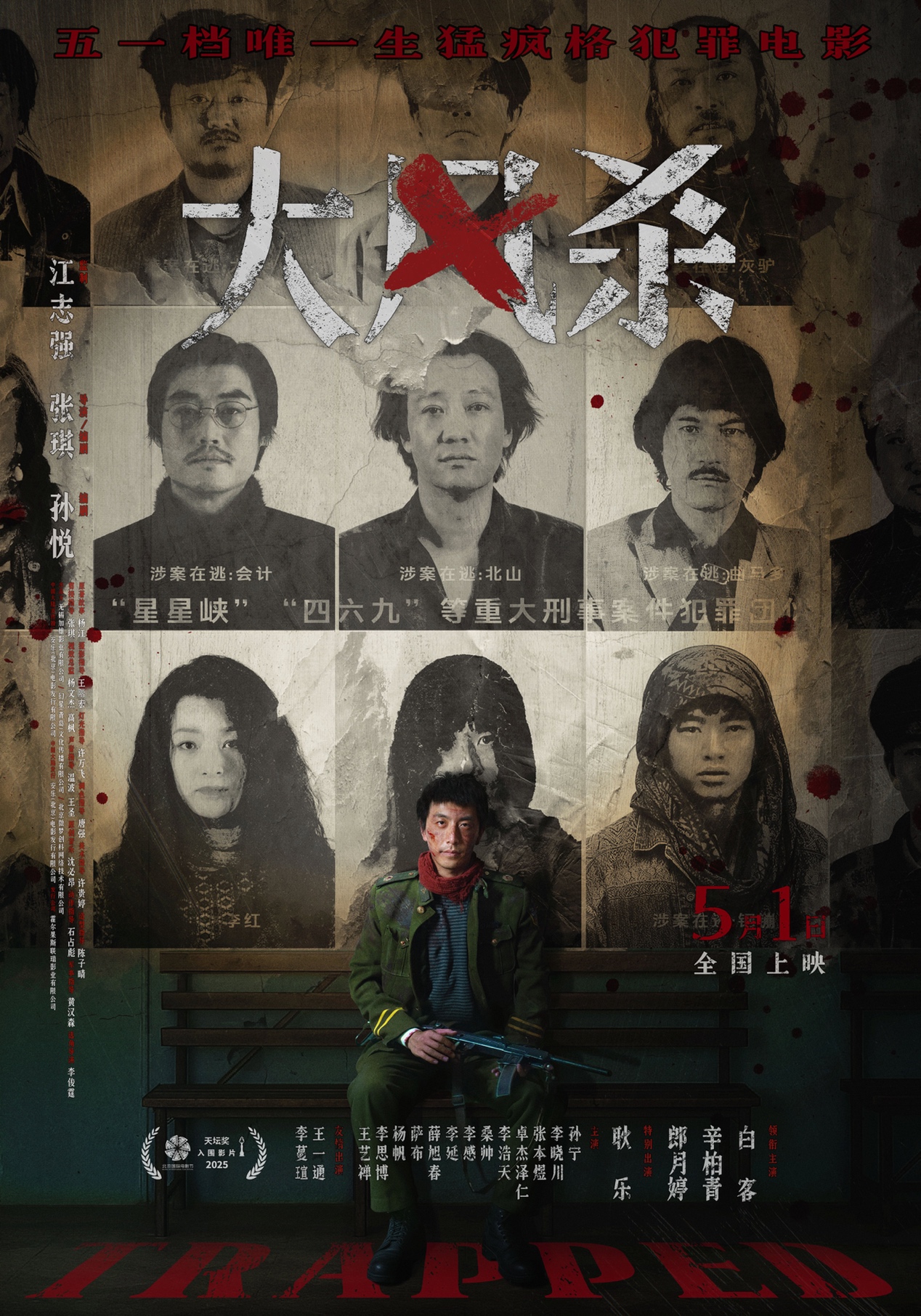
Poster of "The Wind Kills"
"This once prosperous town longs to have its own era again one day. Its status and all the characters in the movie have a certain intertextual relationship," said Zhang Qi. This fate of prosperity turning into decline sets the tone of loss and confusion for the film, and also foreshadows the inner colors of the characters.
As a professional filmmaker who has edited a large number of commercial films, Zhang Qi certainly knows how suitable the story of "Big Wind" is to tell a heroic police and gangster story that meets the standards of industrial genres - a closed small town, full of dangers, a veteran who survived the brutal battlefield, facing fully armed and violent gangsters, one man with one gun, deep into the enemy's hinterland... But when Zhang Qi received this opportunity from the famous Hong Kong producer Jiang Zhiqiang, the first thing he did was to completely subvert this heroic logic.
"Many times, when watching traditional heroic movies, the heroes in them are very strong and determined. But when I watch movies, I always focus on the purpose of an event. When fighting in the city like a superhero, I wonder what about the people in the building and downstairs? Those ignored lives are also part of each family."
This kind of thinking prompted him to make fundamental changes to the original story, reversing the narrative direction, placing both the hero and the gangster in their own dilemmas of loneliness and fear, and constructing a unique narrative model.
In the end, it is not simply justice that triumphs over evil. The sandstorms that come at any time, the ups and downs of human hearts, and fear are like a secret and powerful key that become the key clues throughout the story.
Xia Ran, played by Bai Ke, experienced the war and lost all his comrades. He was the only survivor and has been known as the "bird of mourning". "Xia Ran always keeps to himself and hides his true feelings. He is afraid of both loneliness and building relationships with others." He came to the border town of Mangya. It seems like he is exiling himself, but in fact he is escaping the pain of losing again. His bravery is not innate fearlessness, but he gradually finds strength under the cover of loneliness and fear.
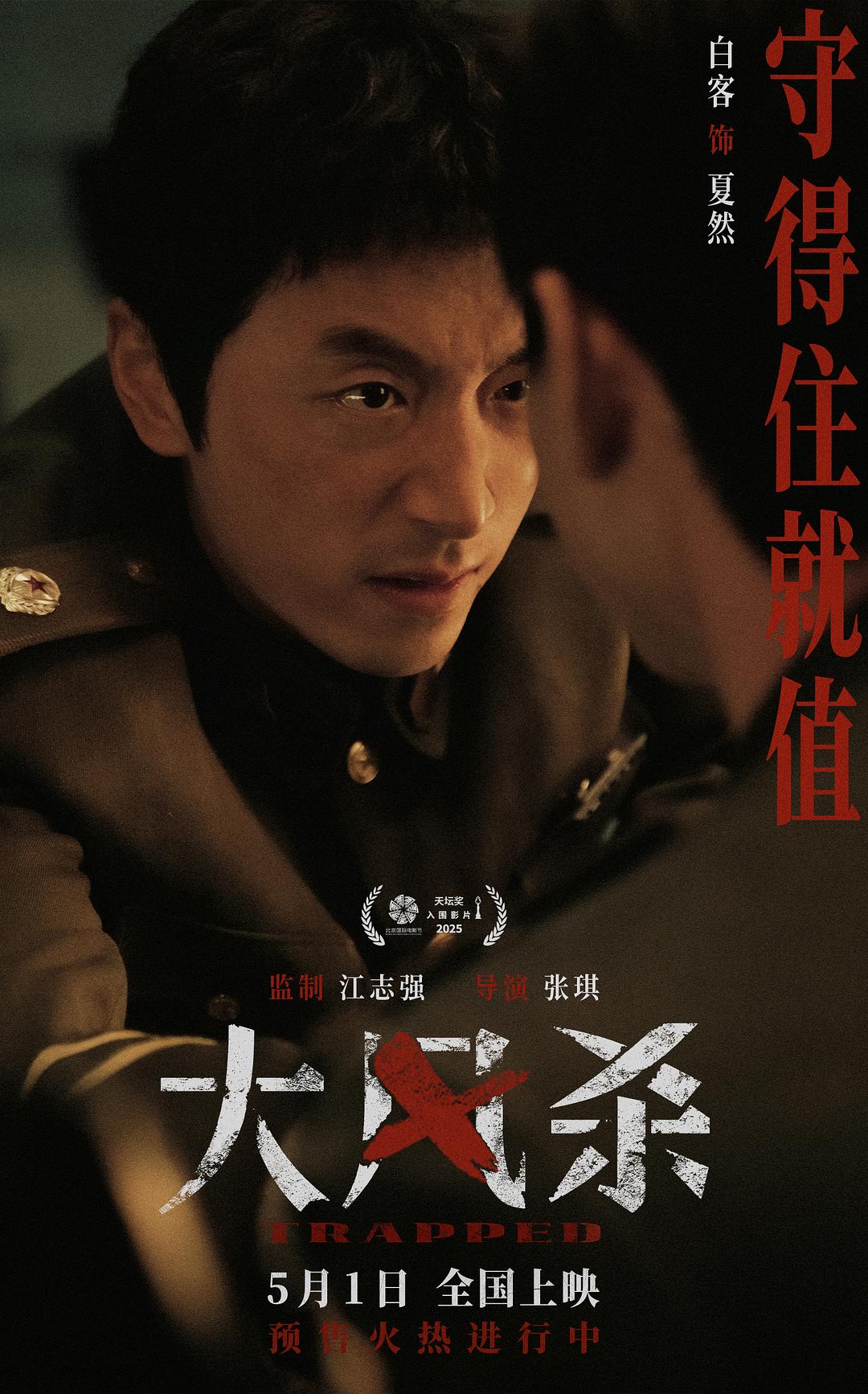
Bai Ke as Xia Ran
Beishan, played by Xin Baiqing, is like a mirror of Xia Ran. The line "I don't care about life or money. I don't know what I care about, and I don't even care if I know it" has become a classic line that fans love to talk about. The ruthless Beishan plunders with a "loose" attitude. On the one hand, he is ruthless and kills without blinking an eye, and on the other hand, he craves the loyalty and recognition of others. The root cause is also the fear of loneliness and uncertainty.
"Beishan is the kind of person who really needs someone to accompany him, but he must force others to accompany him. His starting point is selfish. He is actually very lonely, but he uses an extreme way to cover up this loneliness." Zhang Qi interpreted it this way.
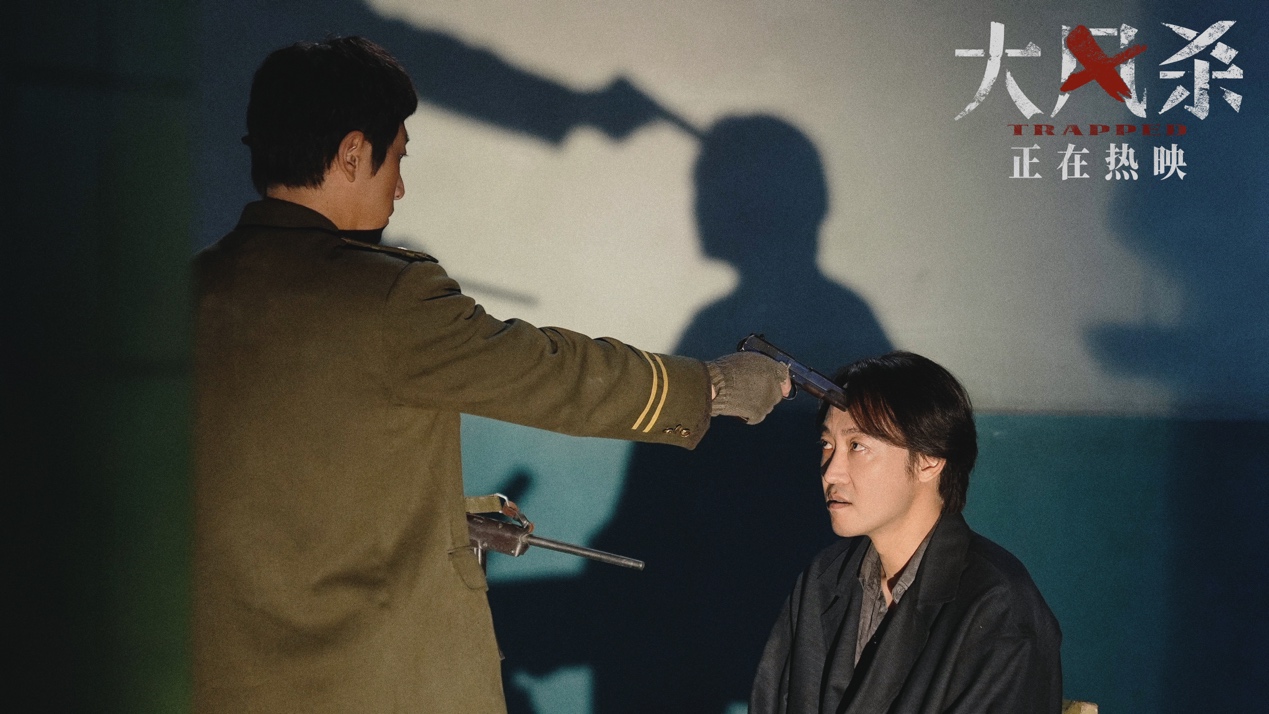
Xin Baiqing's Beishan is like Xia Ran's shadow
In constructing this anti-routine narrative, Zhang Qi intensifies his expression through various scenes and plots.
A gunfight scene in a sheepfold is a typical example. "The sheepfold is the scariest place. The hilltop is pitch black and we don't know where the gunfire is coming from. We want to create this atmosphere of unknown fear, because people are afraid of the unknown and feel oppressed."
In this darkness, both the police and the gangsters are tightly bound by fear, and their actions and reactions more realistically show the fragility and struggle of human nature in the face of fear. This unknown fear breaks the inherent image of the characters in traditional narratives, allowing the audience to see that in extreme environments, there are only people struggling to survive.

Sandstorm on the set
"In fact, many people would ask me how I should shoot, what kind of emotions I should arouse in the audience, how I should tell the story, and what kind of feelings the audience would have. But I was a little resistant in my heart." Zhang Qi talked about this choice that did not meet traditional expectations, "I may not be able to calculate the audience's feelings and use various methods to exaggerate things that are not my original intention."
I want to find the kindest people in life.
Bai Ke, Xin Baiqing, Zhang Benyu, Geng Le... faces that the audience is already familiar with present unexpected appearances in the film.
Zhang Qi's casting philosophy is "I want to find extremely kind and good people in life", no matter what role he wants to present. "I don't think there are born bad people in this movie. They do wrong things because they are lost. It's because they have established wrong beliefs in their life experiences. What I want to believe is that even the most evil people have moments of doubting what they have done."
Recalling the first meeting with Bai Ke and Xin Baiqing, Zhang Qi described it as "probably 20 minutes to half an hour of silence". The staff from all sides were enthusiastically arranging the contact, but the three "protagonists" recognized each other from the crowd by "not saying a word" for a long time. "It seemed that no one felt awkward", in this silence, Zhang Qi felt a certain loneliness in the actors, which coincided with the temperament of the characters.
Bai Ke used to appear in the audience's vision mostly in the form of comedy. He also said frankly that participating in "The Wind" this time was the "biggest challenge" he encountered in his career. In "The Wind", Bai Ke's "loneliness" is not only reflected in his outward loneliness, but also in his inner sense of alienation from the world.
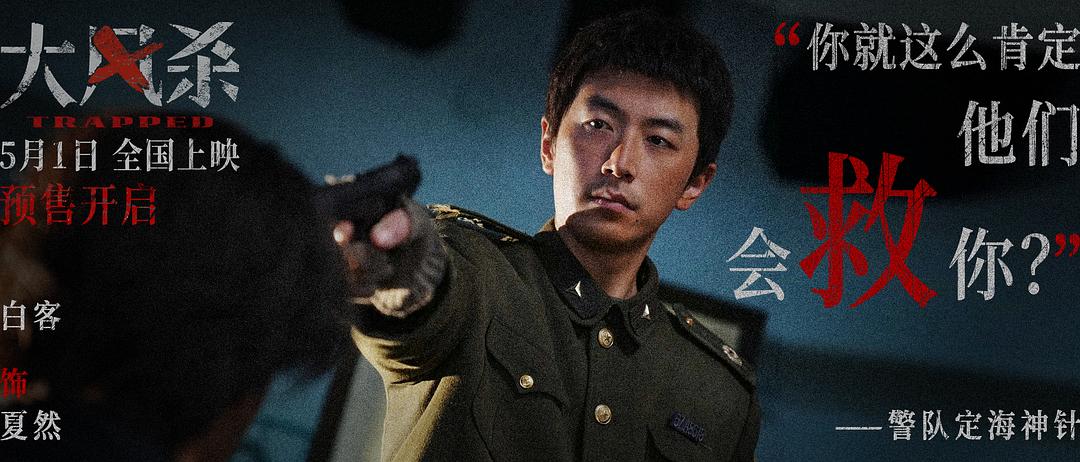
Bai Ke
With his profound acting skills, Xin Baiqing interprets Beishan's madness, desire for power and inner loneliness vividly.
"Compared to the traditional image of a gang leader, his image is softer, his clothes are very soft, and he doesn't wear shoes. This image feature was proposed by Mr. Xin Baiqing after reading the script, which was a great inspiration to me." So a gang leader appeared barefoot, "You feel like he is at home, very relaxed and calm, but his sense of oppression and confidence can be reflected instantly."
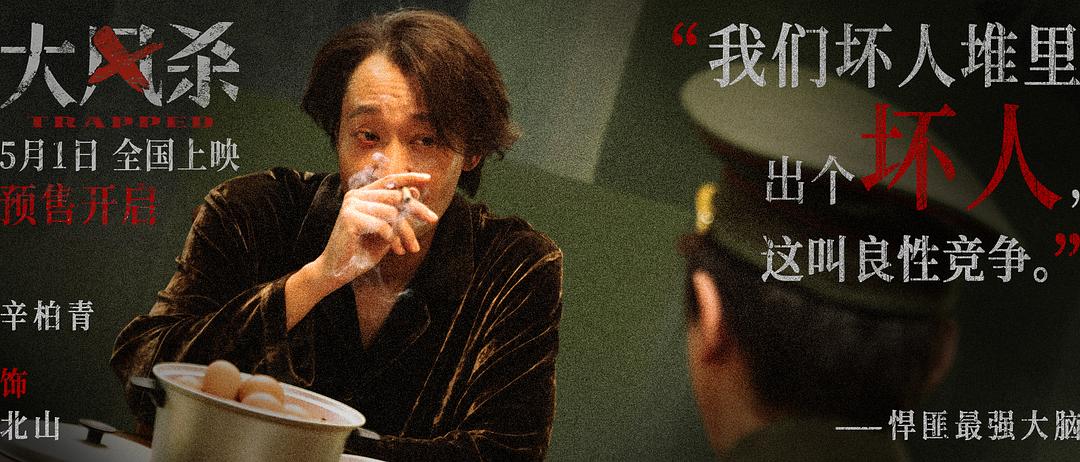
Xin Baiqing
Zhang Benyu's performance is also remarkable. The accountant he portrayed is a person who connects the past and the present, smiling but not smiling, and seems out of place among the brothers who are killing with guns.
Regarding this extremely complex role, the director explained, "The accountant is loyal on the one hand, and rational on the other. He is smart and cautious, but he puts his feelings for Beishan above his own situation. He feels sorry for Beishan in his heart. Beishan is in prison, and he has been helping Beishan manage the gang. He really wants to make the gang bigger and stronger, but the gang is different from before. In order to prevent Beishan from being hurt by the huge gap, he designed a play, and in the end he could only set up a trap to cover up the lie."
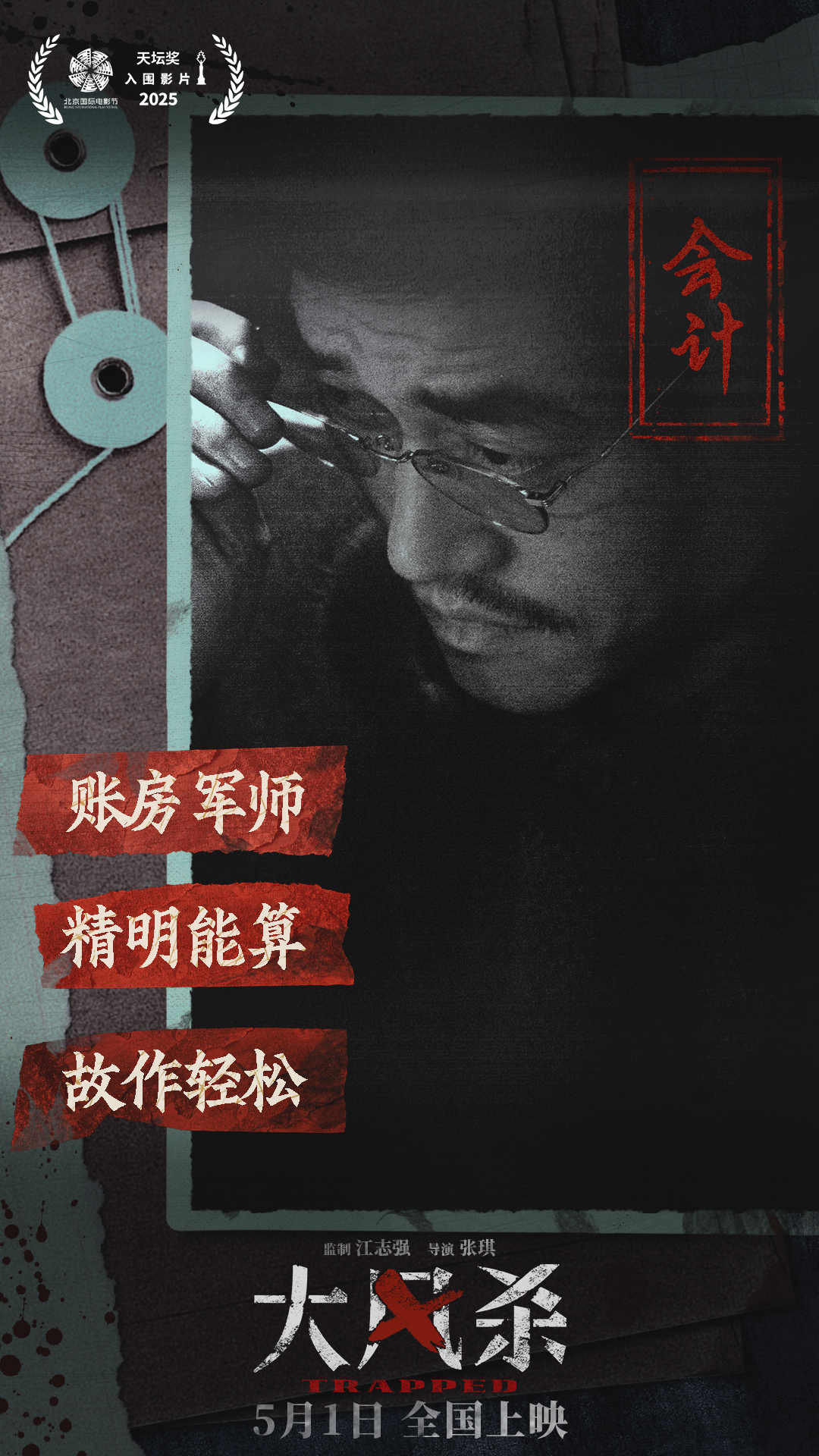
Zhang Benyu plays the role of "Accountant"
"The actors discovered many points and details in their performances that I had not noticed before. This is because they have a particularly deep understanding of the characters." "The Wind" is a work that leaves a lot of "creative space" for both actors and creators. Zhang Qi said with emotion, "I can't say that this is my work, or whose movie it is, because it itself tries to present something that goes beyond my personal understanding. Everyone in the crew and the director have made equal contributions. This is achieved because of everyone's abilities and selfless contributions."
There are many characters in "The Wind Kills". Zhang Qi revealed that during the filming process, the death of each character was carefully portrayed, even if it was just a fleeting scene in the feature film, the on-site shooting was meticulous. "I think this is a very important part. This movie has many violent details, but we did not show them directly, but chose to show the fear before the violence and the impact after the violence. Every violent conflict is not just a simple plot advancement, but the outbreak point of the character's inner fear, and also an opportunity to think about the value of life."
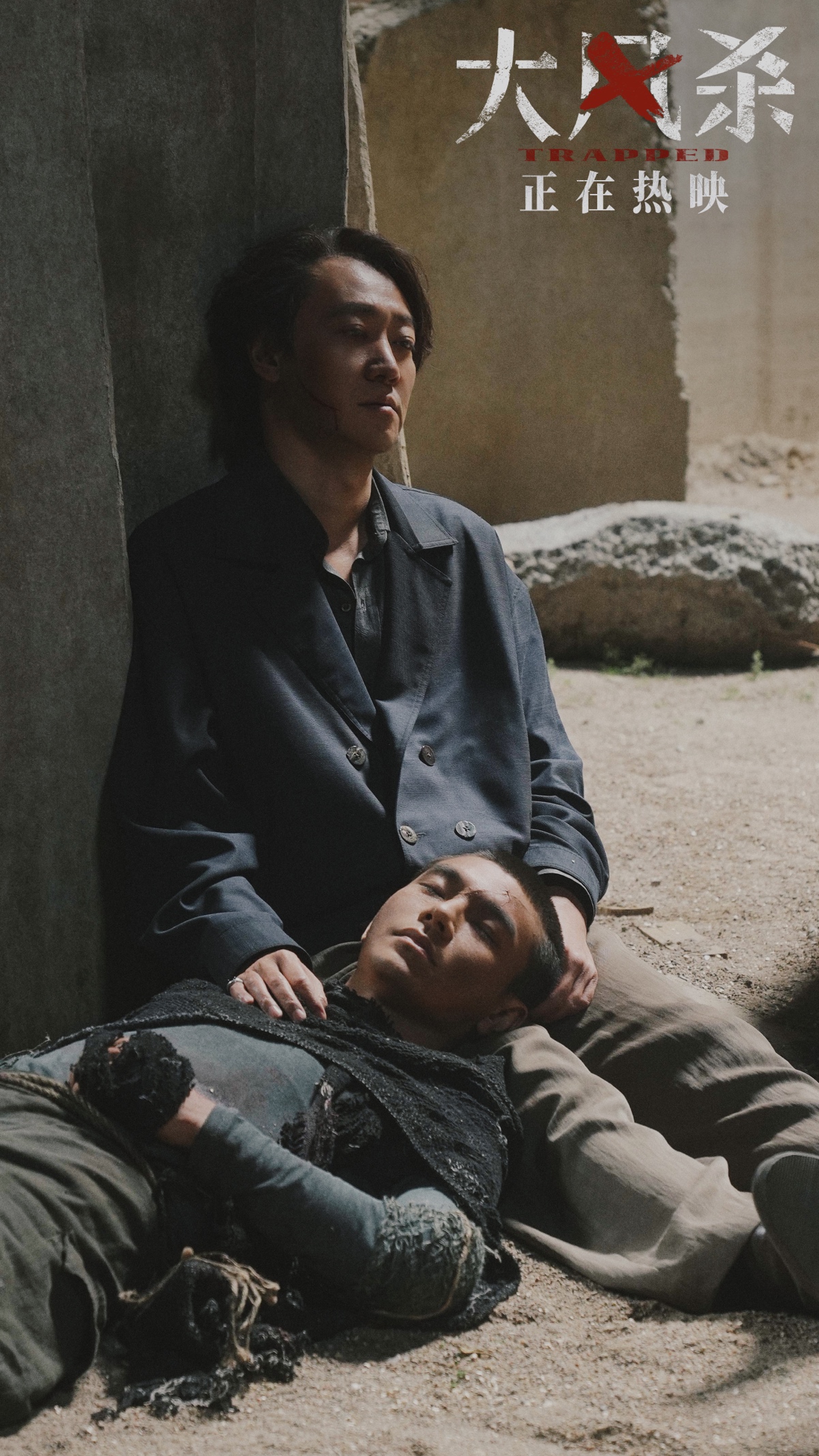
In the end, everyone has a solemn "ending"
The death of each character is not a simple ending to the plot, but a summary of the character's life. Zhang Qi hopes to allow the audience to face the fragility and impermanence of life. If the audience hopes to find a more accurate and hidden expression of the film through some clues, they might as well start by carefully looking at the "ending" of each character as a clue to "solve the mystery".
If the wind doesn't stop, just "listen to the wind singing"
The image of "wind" runs through the entire film, becoming its unique visual element, narrative background and spiritual metaphor.
"Wind is very interesting. If we experience it carefully, it is everywhere. It can be subtle, violent, or even catastrophic. We don't know when it will appear or disappear. It is colorless and odorless. We can't see the wind, but can experience it through the impact it brings. Isn't this very similar to 'change'?"
Zhang Qi's path to directing has also been a journey that has kept pace with the changes in the Chinese film industry. In the more than 10 years since he entered the industry, Zhang Qi and the company he founded, Phantom Star Culture, have become important "partners" in the development of Chinese films. As a highly regarded trailer editor in China, Zhang Qi has worked with many top domestic directors. In the past few years, the trailers for almost every mainstream domestic commercial film have come from this company.
Zhang Qi, who was unwilling to just organize existing materials, also pioneered the "shooting trailers" in the industry, such as creating a "daydream version" of the trailer for the movie "Charlotte's Troubles". In 2018, he won the American Golden Trailer Award, known as the "Oscar of Trailers", for the "Youth Version" trailer of the movie "Youth", becoming the only Chinese trailer to win the award.
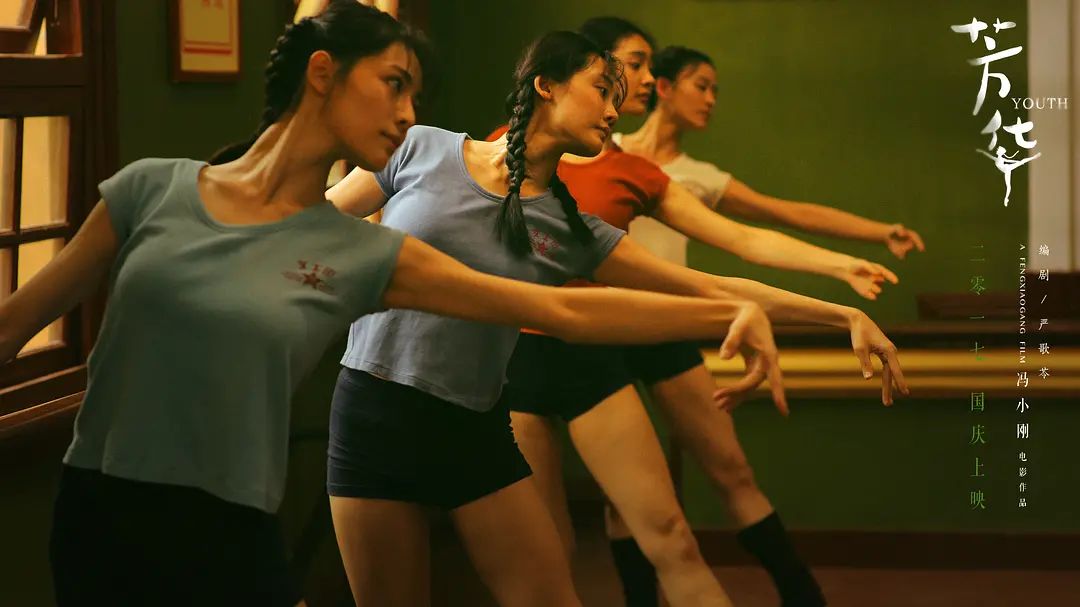
The youth version trailer of "Youth" won the American Golden Trailer Award, the "Oscar of Trailers"
Originally, it was thought that trailers were a way for Zhang Qi to get closer to his dream of making movies. However, he said that the reason he started making trailers was because at that time, he had given up the idea of becoming a director and making movies.
"I used to love movies, but my only understanding of the film industry seemed to be to become a director. Later I found that this thing didn't seem to happen the way I expected and imagined. The profession of director in my imagination was different from the actual work content I saw."
Zhang Qi admitted that when she first entered the industry, she was confused about the industry, but she found a purer joy on the editing table, which was closer to the film itself. "It seems that my love for movies is not brought by a certain position or identity. I don't make trailers for the purpose of becoming a director one day. I treat it as another thing to do."
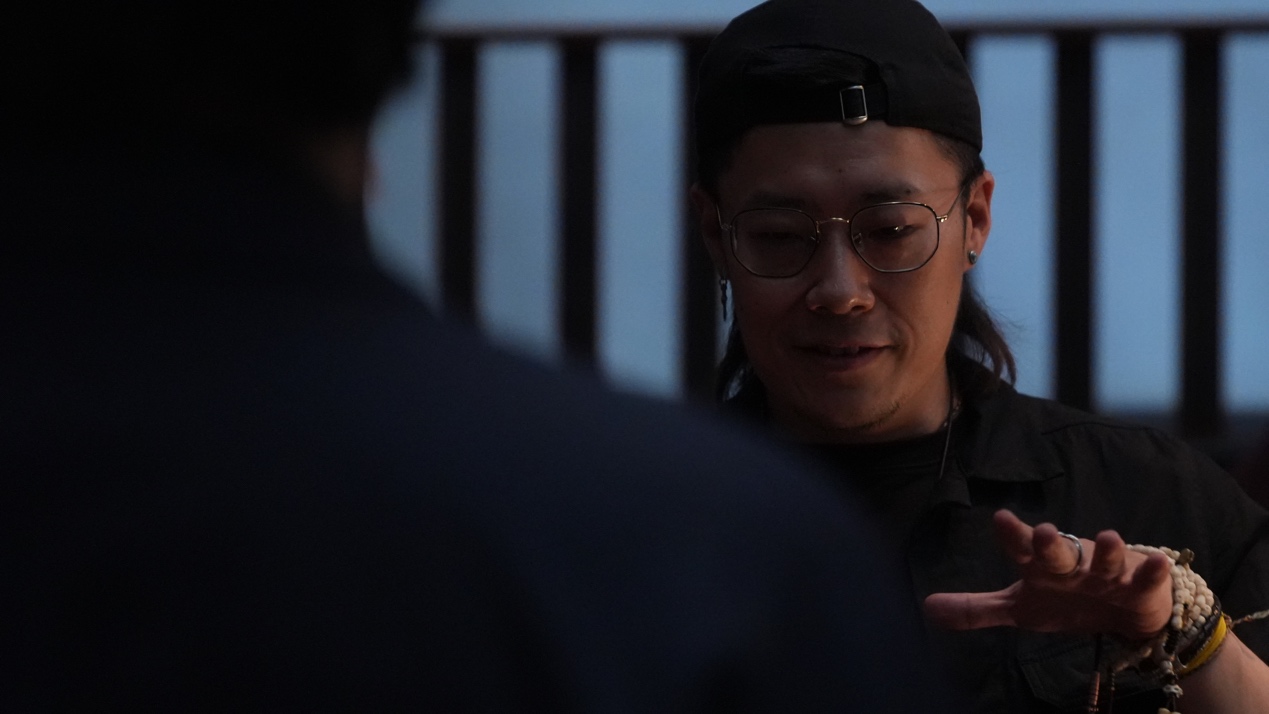
Director Zhang Qi's work photo
Before "The Wind Kills", many projects approached Zhang Qi, hoping that he would direct. During these processes, he could feel the expectations of others. "I might have been afraid to do this before. I couldn't tell whether it was my own expectations of myself or whether I cared about other people's opinions of me, how a movie should be shot and how it would turn out."
Until I met "The Wind", this story aroused not the desire to express, but the original intention of loving movies. The closed town, crises and changes are everywhere. The past era is gone forever. A group of people face seemingly diverse choices, but for various reasons, they can only be trapped in the same place. The empathy for the "dilemma" made Zhang Qi want to reconstruct this heroic story.
Judging from the results of the release, the performance of "The Wind" during the May Day holiday was not satisfactory, but many viewers who liked the film had in-depth exchanges about the film in offline roadshows and on social networks. Zhang Qi understood that this creation was a risk that he and the audience had to take together. "In fact, I made a choice, whether to trust the audience. If you want to believe, then believe it completely - people who understand it know what I am saying."
Zhang Qi is very happy that he met a group of people who understand and love movies because of "The Wind". "This movie is an inward-looking movie. Although there are many changes on the outside, it is not outward-looking. So the audience's feelings when watching this movie are the same. To connect to the audience's inner feelings, some traditional methods are not applicable."
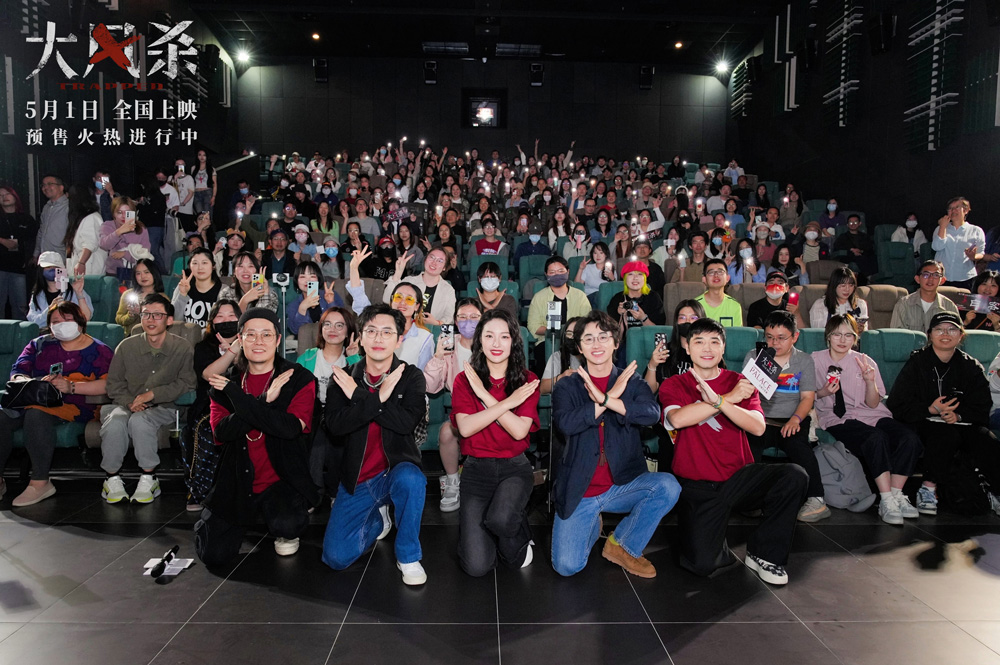
"The Wind" chooses to "believe in the audience"
"Cinematic feeling" is the evaluation of "The Wind" by fans from its debut at the Beijing Film Festival to its theatrical release. As short videos become more and more popular, Zhang Qi's own films have to appear on mobile social media in a variety of simpler and more brutal ways. Because the relationships between the characters in the film are complicated and the conflicts in the case are fierce and brutal, from different perspectives, some eye-catching spoiler-style explanations can be created.
Regarding the movie fragments scattered on the Internet, Zhang Qi said, "The role of short videos cannot be generalized. We need to analyze specific issues specifically. But at least for this movie: the character creation, the presentation of atmosphere, the control of scale, these belong to the viewing experience of the theater, and I am not worried that they will be destroyed by short videos."
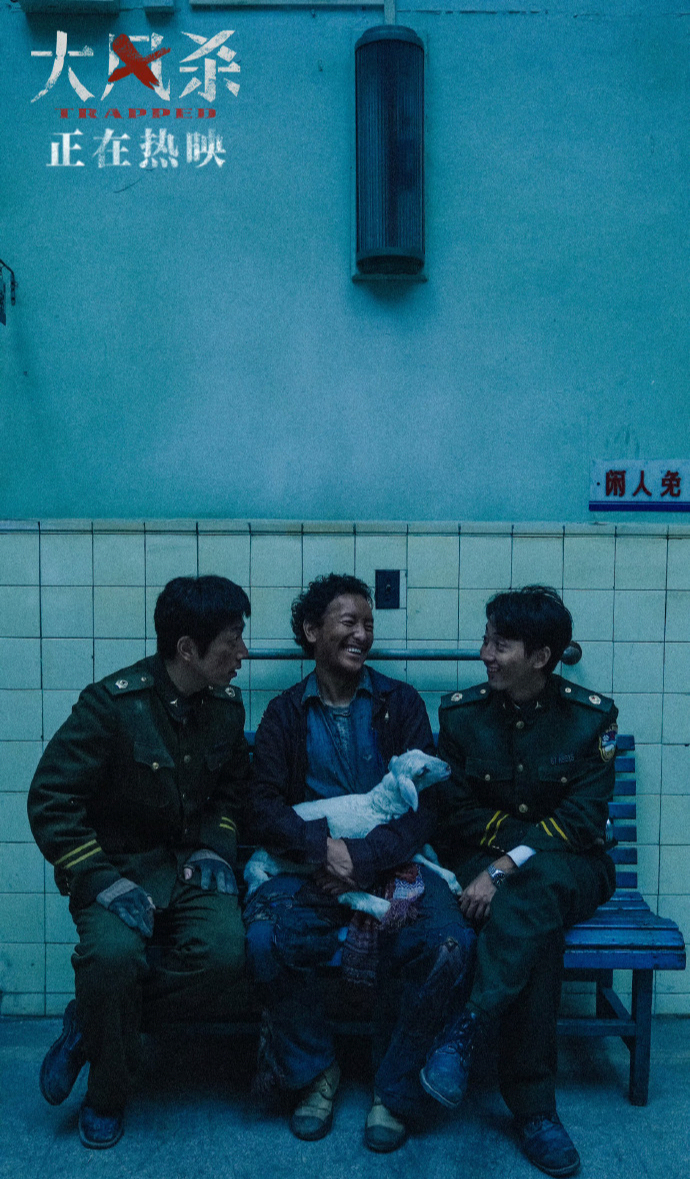
Stills from The Wind
The plot of the movie is cold, fierce, and violent, but at the end, Pu Shu's "Hear the Wind Sing" sounds, which gently caresses the peace and tenderness in everyone's heart. Zhang Qi revealed that when editing, he had arranged several different endings for the protagonist Xia Ran, but in the end he still didn't know how to solve his dilemma. Until the ending of this version appeared, "Hear the Wind Sing", a song written more than 20 years ago, also emerged, and everything seemed to be logical. "A lot of pain cannot be solved, because change cannot be stopped and happens randomly in everyone's life. You can only change your view and attitude towards it. Just like the song says."
Over the years, Zhang Qi did not stop making trailers and editing videos for the filming of "Big Wind". He has never been obsessed with being a director, but his love for movies has never changed. Even today, the overall environment of the film is experiencing a howling wind, just like the theme of the film.
"I think modern people have a natural sense of loneliness and a desire to connect with others. Movies can allow hundreds of people to sit in one place, turn off the lights, and enter a world together, sharing a memory. This allows us to feel that this world is more than just the life in front of us."
And in those "days blown by the wind", there are always people chasing endless dreams.


